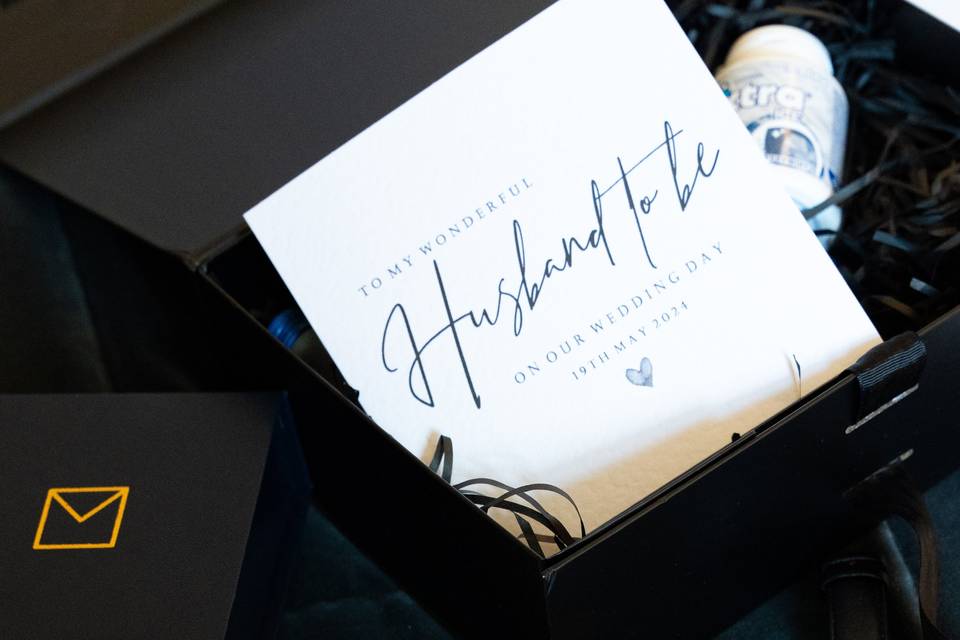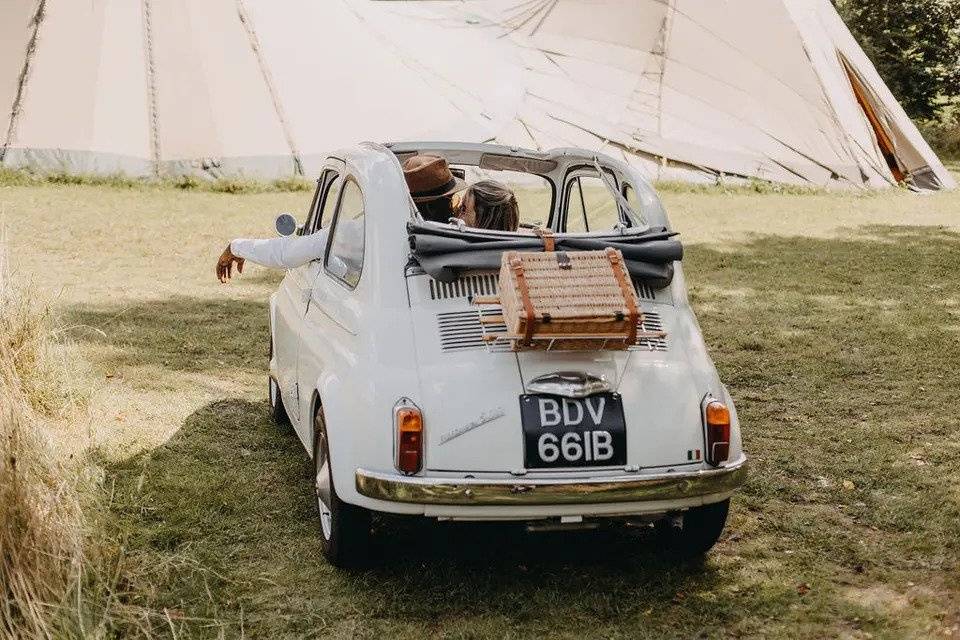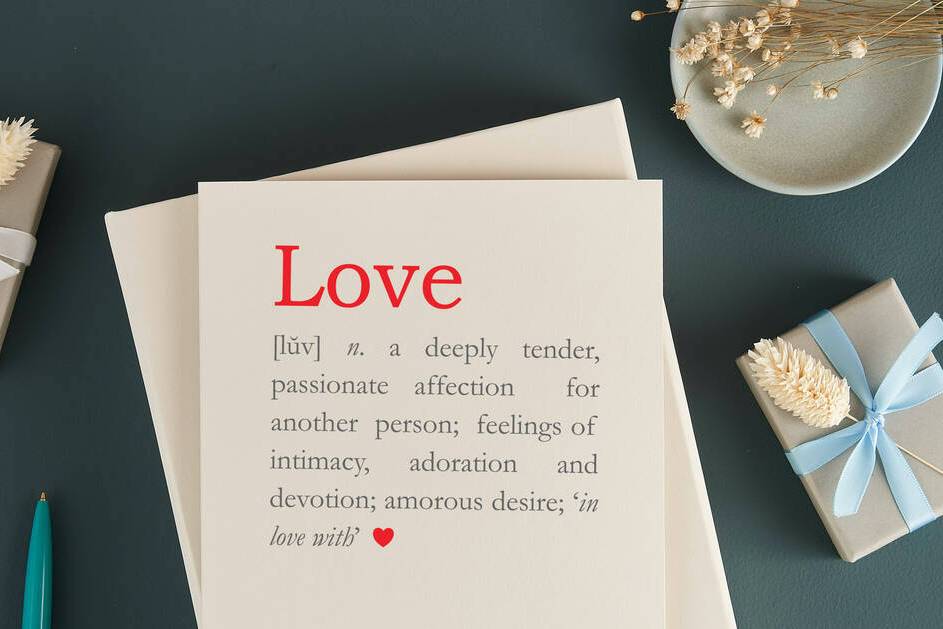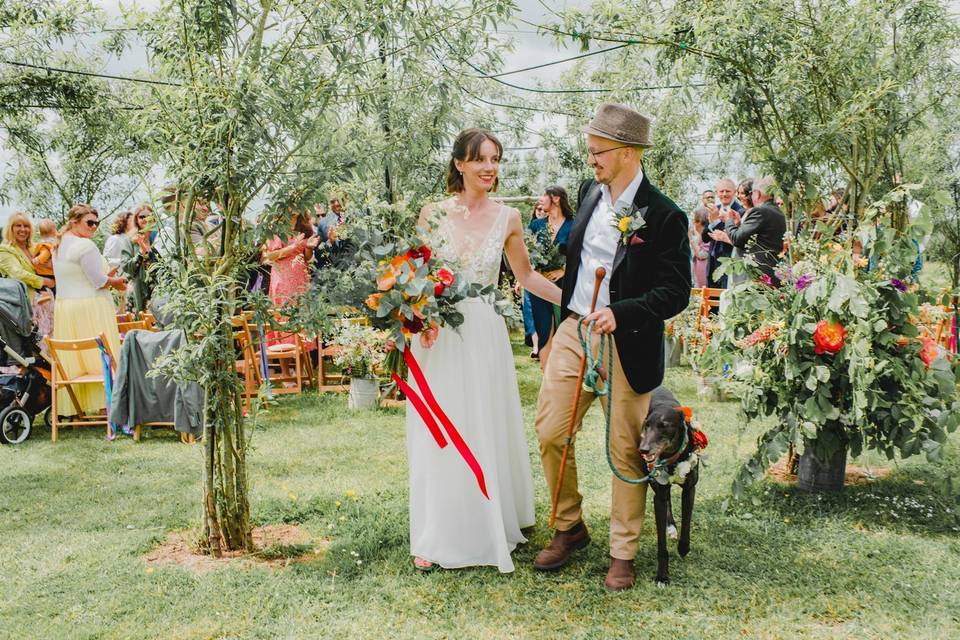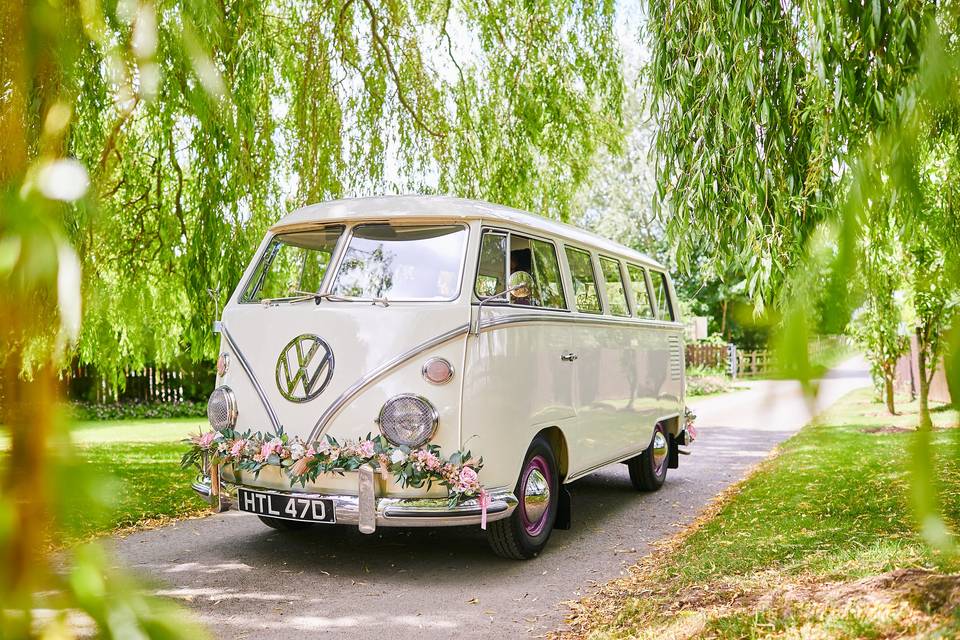Can You Plan a Wedding with AI? A Wedding Expert Goes Head to Head with ChatGPT
Wondering if you can plan a wedding with AI? Wedding expert and editor of Hitched Zoe Burke put ChatGPT to the test...


With over a decade of experience helping couples to plan their weddings, I like to think there’s nothing I don’t know about how to plan a wedding.
So with AI hype at an all-time high, I thought I’d put ChatGPT to the test and see if you can use AI to plan your wedding.
A wedding is a hugely personal experience that should reflect you and your partner - I truly believe that there’s no formula or template for the perfect wedding, so let’s see what AI comes up with when I ask it the wedding planning FAQs I get asked the most often…
The Challenge
I’m going to share the advice I’d give as a wedding expert to some of the most frequent wedding planning questions we get asked, before putting the same question to the robot that answers the questions for ChatGPT (that’s how it works, right?) to see if it’s an effective way to plan your big day.
Question 1: Where to Start with Wedding Planning?
Expert advice: I would always advise couples to make a rough wedding budget, figuring out how much they want to spend and how long they need to save, before looking at the venues they like.
You might need to adjust your wedding budget accordingly based on the venues you like and the amount of people you want to invite.
I’d also say to factor in the date you’d like to get married on - as not every venue will have it available, and it might impact the price.
AI Advice: Congratulations on your engagement! Wedding planning can be an exciting but overwhelming experience, but don't worry - with a bit of organization and planning, you can create the wedding of your dreams. Here are some steps to get you started:
- Determine your budget: Before you start planning, it's important to establish a budget. This will help guide your decisions throughout the planning process and ensure that you don't overspend.
- Choose a date and venue: Decide on a date and start researching venues that fit within your budget and style preferences. Keep in mind the guest count, location, and availability when selecting your venue.
- Create a guest list: Determine the number of guests you want to invite and create a preliminary guest list. This will help you determine the size of your venue and your overall budget.
- Hire vendors: Research and hire vendors such as a caterer, photographer, florist, and entertainment. Make sure to read reviews and ask for referrals from friends and family.
- Choose your wedding party: Decide who you want to stand by your side on your big day and ask them to be a part of your wedding party.
- Select your wedding dress and attire: Start shopping for your wedding dress and attire for your wedding party.
- Plan your ceremony and reception: Decide on the flow of your wedding day, including your ceremony and reception details such as decorations, music, and food.
- Send out invitations: Once you have the details of your wedding planned, send out invitations to your guests.
Remember, wedding planning should be enjoyable, so don't forget to have fun and celebrate with your partner along the way!
Verdict: Okay, so AI is more polite than me as it’s thrown in a congratulations. Which I definitely would do if someone was asking me face to face. Our advice is pretty much on a par, I think - a lot of it can be found in this wedding planning guide.
I do think it’s odd ChatGPT just assumed I was a woman in need of a wedding dress, so the robot loses a mark for that (especially as I’m using my boyfriend’s ChatGPT account - he’ll be sweating if he can read the question history).
Question 2: How to Find a Wedding Venue

Expert advice: I would obviously advise you to use the Hitched wedding venues section - and that’s not just because of my close proximity to the brand!
Browsing wedding venues on Hitched allows you to shortlist the ones you love all in one place, and you can compare loads of handy extras like accessibility, accommodation, parking etc. and look for pricing information and deals to ensure it’s within your budget. You can also read reviews from real couples for a more personal take!
You can filter by venue type, so if you love rustic barns, you can browse all of those, or you can filter by castles in your local area if that’s your vibe.
Once you’ve got your shortlist, I’d recommend going to view a few - between three and five is a good range - and going equipped with a list of questions to ask the wedding venue. This is one of the most fun bits of wedding planning as you’re about to find the setting for your relationship transformation!
AI advice: Finding the perfect wedding venue can be a daunting task, but there are several ways you can start your search:
- Determine your budget: Before you start your search, it's important to know how much you can afford to spend on your venue. This will help you narrow down your options and avoid falling in love with a venue that's out of your price range.
- Consider your style: Think about the type of wedding you want and your personal style. Do you want a formal or informal wedding? Do you prefer a rustic or modern venue? This will help you narrow down your options and focus on venues that fit your style.
- Check online resources: There are several websites that list wedding venues and provide reviews and photos. Some popular sites include WeddingWire, The Knot, and Yelp. You can also search for wedding venues on social media platforms like Instagram and Pinterest.
- Ask for referrals: Ask friends, family, and co-workers if they have any recommendations for wedding venues. They may have attended a wedding at a venue that they loved and can provide valuable insights.
- Attend bridal shows and open houses: Bridal shows and open houses provide a great opportunity to meet with vendors and tour wedding venues. Take advantage of these events to gather information and get a feel for different venues.
- Contact venues directly: Once you've narrowed down your list of potential wedding venues, contact them directly to schedule a tour and discuss availability and pricing.
Remember, the venue sets the tone for your entire wedding, so take your time and choose a location that you love and fits your style and budget.
Verdict: Hmm, the robot is a bit doom and gloom, isn’t it? I don’t think it’s daunting, I think it’s exciting! I’m going to mark them down for only listing American websites, but only by half a point as The Knot and WeddingWire are our sister brands so at least it has good taste.
Question 3: How Much Should I Spend on My Wedding?
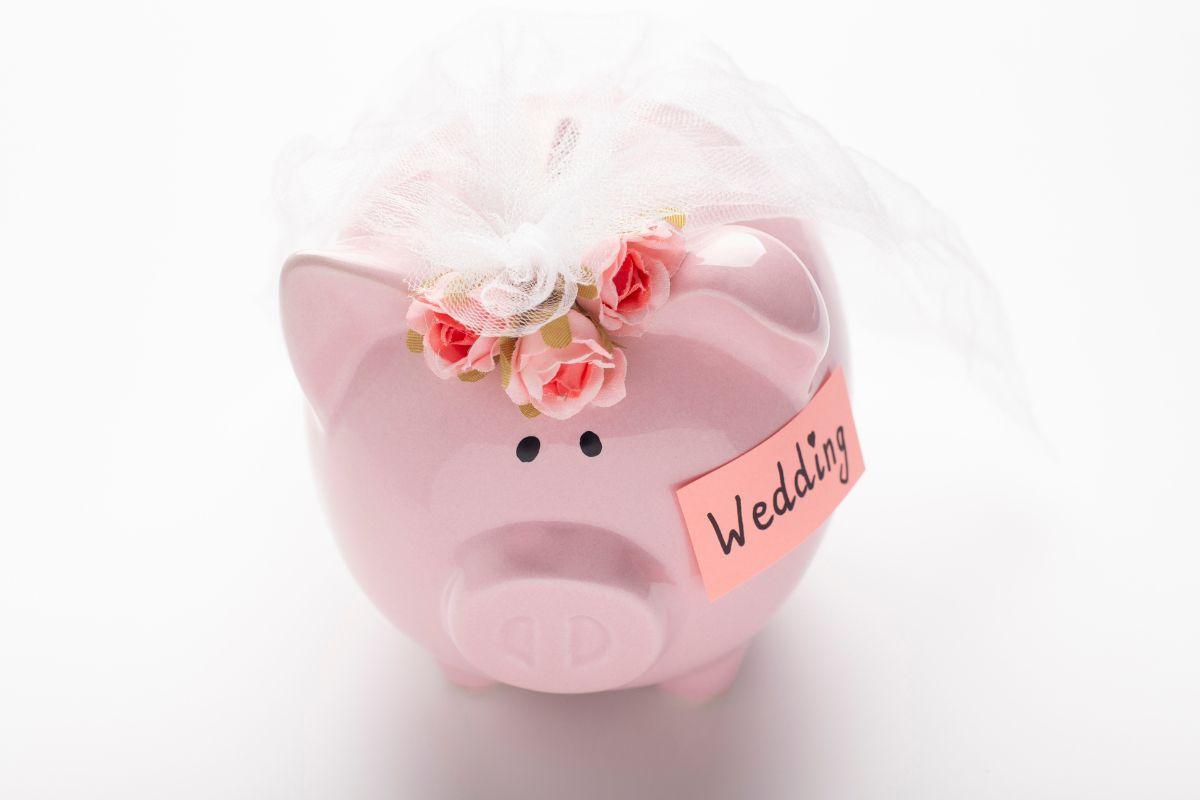
Expert advice: I get asked this, or a variation on this, a LOT. I’ll say - whatever your budget is, you can get married and that’s the most important bit. Whether you’re spending tens of pounds on a registry office wedding, or thousands on a grand affair - it’s all relative.
The current average cost of a wedding is £18,400. But this is exactly that - an average, made up from thousands of different weddings, all costing different amounts.
Decide what you can afford, look for vendors who fit your budget, stay on top of it with a great budget tracker and remember, as long as you’re getting married, that’s what really matters.
AI advice: The cost of a wedding can vary greatly depending on a number of factors such as location, number of guests, style and theme, and the vendors and services you choose. Ultimately, the amount you spend on your wedding should be determined by your budget and personal preferences.
As a general guideline, the average cost of a wedding in the United States is around $33,900, but this varies widely based on location and other factors. However, it is important to note that you do not have to spend this much to have a beautiful and memorable wedding.
To determine your budget, consider factors such as your income, savings, and any contributions from family members. Once you have a budget in mind, prioritize the elements of your wedding that are most important to you and allocate funds accordingly. You may want to consider splurging on elements that are most important to you and finding ways to cut costs in other areas.
Remember, the most important thing is that you celebrate your love and commitment to each other in a way that feels authentic and true to your relationship. Don't get too caught up in the details or feel pressure to spend beyond your means. With some thoughtful planning and creativity, you can have a beautiful and memorable wedding that fits within your budget.
Verdict: So both the robot and I gave an average figure (I’m clearly thinking like a machine here). The little AI creature has been quite nice here and given a little spiel about the meaning of marriage too - I thought I’d outwit it by doing that!
But again, its advice is very US-centric - so I still don’t think it’s beaten me yet. I know I’m biased, but it’s stressful going head to head with a robot that’s read the whole internet. I’m just a girl who has read most of the internet.
Question 4: Should I Invite Children to My Wedding?
Expert advice: Again, this is one I get asked a lot. I can’t tell anyone whether they should or not, but I can say that you should do exactly what you want to do - not bow to pressure from anyone else.
If you think it’s not a wedding without children around (this has been said to me in the past), then of course you must invite them - and make sure you have ways to entertain the kids at your wedding.
If you don’t want kids running around whilst the adults are mingling, then do not invite them. Just give your guests plenty of notice so they have time to arrange childcare, and do not be offended if some of your guests decline to come. People really like their own children, more than they like anyone else, and we just have to accept that.
If you need an excuse not to invite them, always go with wedding venue capacity.
AI advice: The decision of whether or not to invite children to your wedding is a personal one that should be based on your preferences and the style and tone of your wedding.
If you decide to invite children, consider providing age-appropriate activities or a designated children's area to keep them entertained during the wedding reception. You may also want to consider hiring a babysitter or childcare service to supervise the children and give their parents a chance to enjoy the festivities.
On the other hand, if you choose not to invite children, be sure to communicate this clearly on your invitations so that parents can make appropriate arrangements. You may also want to consider offering childcare options for parents who may not be able to find a babysitter.
Ultimately, the decision of whether or not to invite children to your wedding is up to you and your partner. Consider your personal preferences, the tone and style of your wedding, and the needs and preferences of your guests when making your decision.
The verdict: Okay, the robot has given great advice here. And it’s really objective and fair. I don’t think it’s as funny as my advice, but it’s good, it’s balanced and it’s not overly American or making assumptions about me. I wouldn’t say you had to provide childcare for the kids you’re not inviting, but this robot is clearly minted so it has suggested that.
Question 5: How Do I Decide Who to Invite to My Wedding?
Expert advice: I would always say to imagine your wedding - who do you see around you? It’s probably your family, your partner’s family and all your besties.
It’s probably not Sandra from accounts who is always a nightmare about your expenses. It’s probably not your weird neighbour who keeps trying to be invited over for a barbecue.
So work on that basis. Look at your venue’s capacity and your budget limitations, split the amount of guests on your wedding guest list fairly between you (it’s not always a 50-50 split, especially if one of you has a much larger family, so pro-rata it), and write out your ‘A-list’.
I’d also recommend having a B-list, so if any of the A-list are unavailable you have a handy list of subs to take off the bench.
Ignore those annoying people who sniff around for an invite, whether it’s for them, their boyfriend you’ve never met, or their kids. Just blame it on that limited venue capacity, always.
AI advice: Deciding who to invite to your wedding can be a difficult and sometimes sensitive process, but here are some tips to help you make your guest list:
- Determine your budget: Your budget will play a significant role in determining the size of your wedding and the number of guests you can afford to invite.
- Create a preliminary guest list: Start by making a list of everyone you would like to invite, including family members, friends, and colleagues. It's important to be inclusive at this stage and not leave anyone out.
- Determine your priorities: Consider the people who are most important to you and your partner, as well as those who have played a significant role in your lives. This will help you prioritize your guest list.
- Consider your venue: The size of your venue will dictate the number of guests you can accommodate, so keep this in mind when finalizing your guest list.
- Consider your relationship with each potential guest: Think about your relationship with each person on your list and whether or not you have spoken to them recently or have an ongoing relationship.
- Consider any social or cultural obligations: In some cultures, weddings are large events where it is expected to invite distant family members and acquaintances. Be sure to consider any social or cultural obligations when making your guest list.
- Consider the impact on your budget: As you finalize your guest list, be mindful of the impact on your budget, as each additional guest will increase the cost of your wedding.
Remember, your wedding is a celebration of your love and commitment to each other, and you should invite the people who are most important to you and your partner. Be thoughtful and considerate when making your guest list, and don't be afraid to reach out to friends and family for advice and input.
The verdict: The robot is pulling its socks up (do you think they are made of metal, or fabric?). It’s given a very detailed list but I would say only to involve friends and family in your guest list planning if you really trust their advice, motives and input.
Involving anyone but the two of you in your wedding guest list planning can open up a whole can of worms…
Question 6: Do I Need Wedding Insurance?
Expert advice: Yes, you do. I always recommend that couples get wedding insurance to protect them and their money in the event of any wedding disasters.
You should also check your vendors’ insurance too - do they have public liability insurance? What plans do they have in place if something goes wrong on their end? You can’t put a price on peace of mind.
AI advice: Wedding insurance is not a requirement, but it can provide valuable protection and peace of mind in case of unforeseen circumstances. Wedding insurance typically covers issues such as vendor no-shows, severe weather, damage to wedding attire, and illness or injury to the bride, groom, or key members of the wedding party.
Consider the potential risks and costs associated with your wedding when deciding whether or not to purchase wedding insurance. If you are spending a significant amount of money on your wedding or if there are any factors that could increase the risk of cancellation or other issues, wedding insurance may be a wise investment.
Wedding insurance policies can vary in cost and coverage, so be sure to read the fine print and understand the terms and conditions of your policy. It's also a good idea to compare policies and pricing from multiple providers to ensure that you are getting the best value for your money.
Ultimately, the decision of whether or not to purchase wedding insurance is a personal one that should be based on your individual circumstances and preferences. While it's impossible to predict every potential issue that may arise, wedding insurance can provide valuable protection and peace of mind on your special day.
The verdict: The AI advice is less definitive in its tone than my advice. It’s true there are a range of policies and a range of prices, but even if you can only afford the most basic, I definitely think it’s worth doing.
Question 7: How Do I Legally Get Married?
Expert advice: So, first you need to make sure you’re both over 18, you’re both not already married, and that you’re not closely related.
Hopefully you got full marks for all of those. We’re talking England and Wales here, as Scotland and NI have different rules, but first you need to decide where you’re getting married.
Once that’s done, you need to ‘give notice’ and sign a legal statement to register your intent to get married - this is done at your local register office. You can only do this once you have your venue sorted, as you need to state where it will take place.
For a civil ceremony, you’ll need a registrar to conduct it - it costs £46 at a register office and you must have two witnesses present. Prices will vary if you’re having a registrar come to your wedding venue.
You must exchange vows, and sign a marriage schedule or document.
AI advice: The process for getting legally married can vary depending on your location, but here are some general steps to follow:
- Obtain a marriage license: In most places, you will need to obtain a marriage license from your local government office. You and your partner will typically need to provide identification, such as a driver's license or passport, and pay a fee.
- Choose an officiant: An officiant is someone who is authorized by the state to perform marriage ceremonies. This can include religious leaders, judges, or other authorized individuals. Check with your local government to find out who is authorized to perform marriage ceremonies in your area.
- Plan the ceremony: Once you have obtained your marriage license and chosen an officiant, you can start planning your ceremony. This can include choosing a location, selecting readings and music, and deciding on any traditions or customs that you want to include.
- Have the ceremony: On the day of your wedding, your officiant will perform the ceremony and you and your partner will exchange vows and rings.
- Sign the marriage license: After the ceremony, you and your officiant will sign the marriage license to make the marriage legal. The license will need to be returned to the government office within a certain time frame to complete the legal process.
It's important to note that the requirements and process for getting legally married can vary depending on your location, so be sure to check with your local government office for specific instructions and guidelines.
The verdict: The AI wedding advice is very US-centric again. I like how it structures its tips though - very neat.
Question 8: Who Pays for the Wedding Party Outfits?
Expert advice: Traditionally, the couple pay for the wedding party outfits. That being said, not everyone can afford to.
If you aren’t paying for the wedding party outfits, it’s best to be upfront about this early on. You will need to accept if you are not paying for the outfits, you don’t get total control over what they wear.
Wedding party members who are buying their own outfits should be able to have the final say on what they’re spending their money on. I’d recommend giving them a style or colour theme, and asking them to stay in line with that, as a compromise if you can’t afford to or don’t want to buy their outfits.
AI advice: Traditionally, members of the wedding party are responsible for paying for their own attire. This includes the bridesmaids, groomsmen, flower girl, and ring bearer.
However, some couples choose to cover the cost of the wedding party outfits as a gift or gesture of appreciation. This can be a nice way to alleviate the financial burden on your wedding party, especially if they have already incurred other expenses such as travel and accommodations.
If you choose to cover the cost of the wedding party outfits, be sure to communicate this clearly and early on in the planning process. Provide guidance on the style and color of the attire you have in mind, as well as any specific requirements such as shoes or accessories.
Remember, it's important to be considerate of your wedding party's finances and to be clear about any expectations or requirements. If you do not plan to cover the cost of the wedding party outfits, make sure to communicate this clearly as well so that your wedding party can plan accordingly.
The verdict: This is wild! The robot has given totally different advice to me! I don’t believe it's ever been commonplace in the UK for wedding party members to buy their own outfits. This time, AI, you’re putting the AI in FAIL.
Question 9: When Should I Send My Invitations & Save the Dates?
Expert advice: Okay, so the Hitched team and I are asked when to send wedding invitations on a weekly basis. I would always say give about a year for your save the dates, maybe 18 months if you’re getting married abroad in a spenny location.
If you do it any earlier, people will forget - they are not as laser focused on your wedding as you are. You can WhatsApp the date to the key players, too, once you know it. But to make sure your date is front of mind for your broader guest list, a year is a fair amount of notice.
For invitations, if you didn’t do save the dates, send them out with six months to go. If you did do save the dates, three to four months before is customary - as they’ll already have the date on hold, and you can give a shorter RSVP turnaround to get the numbers back to your venue.
AI advice: Sending save the dates and invitations at the right time is important to ensure that your guests have enough notice to make travel arrangements and mark their calendars. Here are some general guidelines for when to send save the dates and invitations:
Save the Dates:
- Send save the dates 6-8 months before the wedding date, or even earlier for destination weddings or weddings during peak travel times.
- Make sure to include your names, wedding date, location, and a note to let guests know that an invitation with more details will follow.
Invitations:
- Send invitations 6-8 weeks before the wedding date for a local wedding, and 8-12 weeks before the wedding date for a destination wedding or during peak travel times.
- Include the date, time, and location of the ceremony and reception, dress code, RSVP instructions, and any other important details such as accommodations and transportation information.
- If you are requesting a response card, include a self-addressed and stamped envelope for guests to return the card.
Remember, these are general guidelines, and you may need to adjust the timing based on your specific circumstances. Be sure to communicate clearly with your guests throughout the planning process and make sure they have all the information they need to be able to attend your wedding.
The verdict: Okay, so the robot is trying to score points with extra context, but it has given very short timeframes and I just don’t agree with it. Maybe its robot pals are all super organised, but the Great British Public could not cope with six weeks on a wedding invite.
The Overall Verdict
Our AI friend did give some good advice, and it was nicely structured and formatted, but the advice it gave was very American (and lacking in fun, humour or general excitement). You could technically plan a wedding with AI, based on the tips it gave, but where is the fun in that?
Why not get the best of both worlds with a wedding planning app for that high tech, robot-world feel, but also keep referring back to Hitched for better banter?

